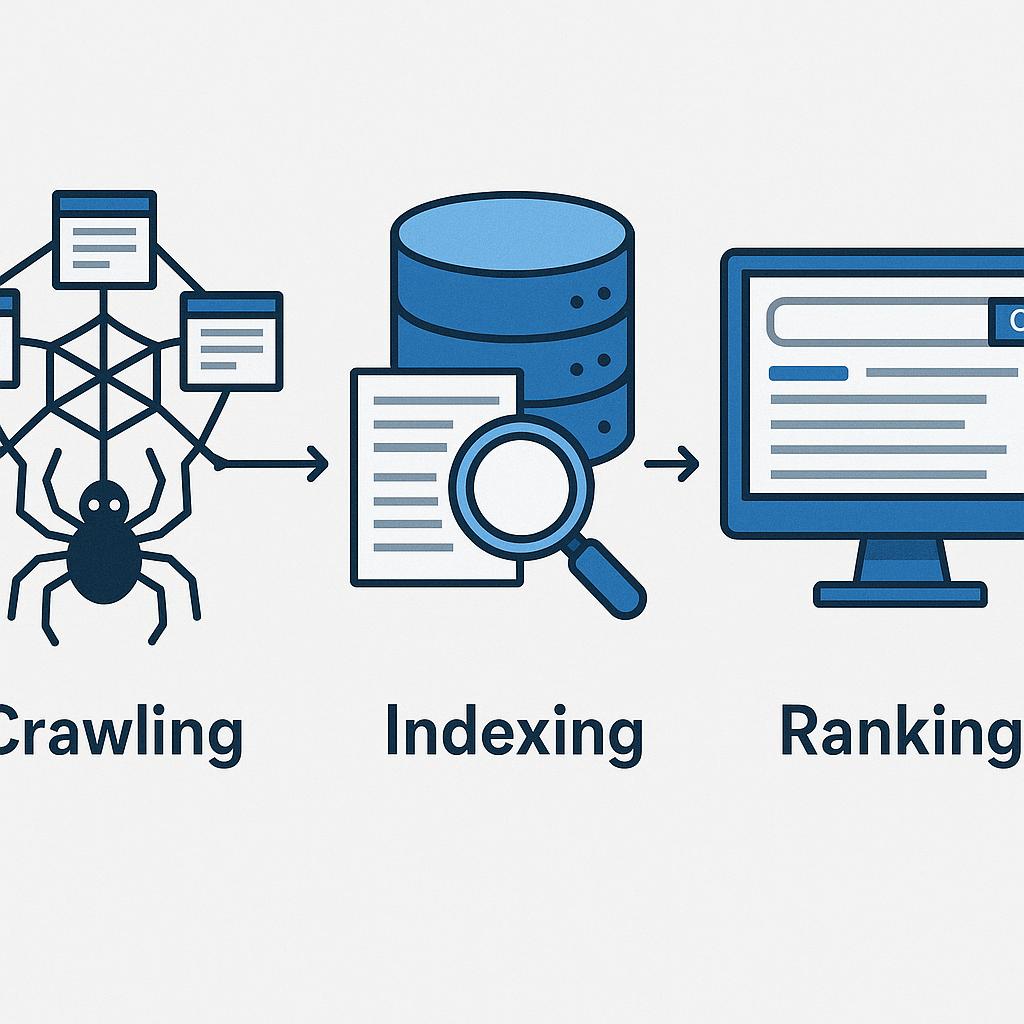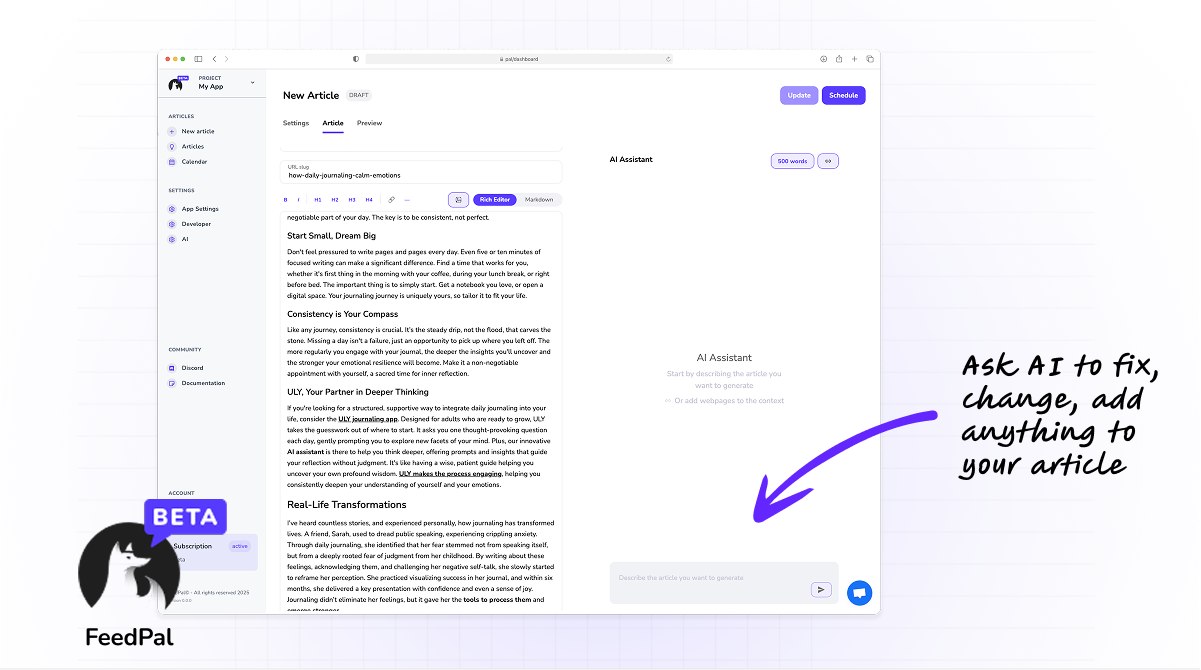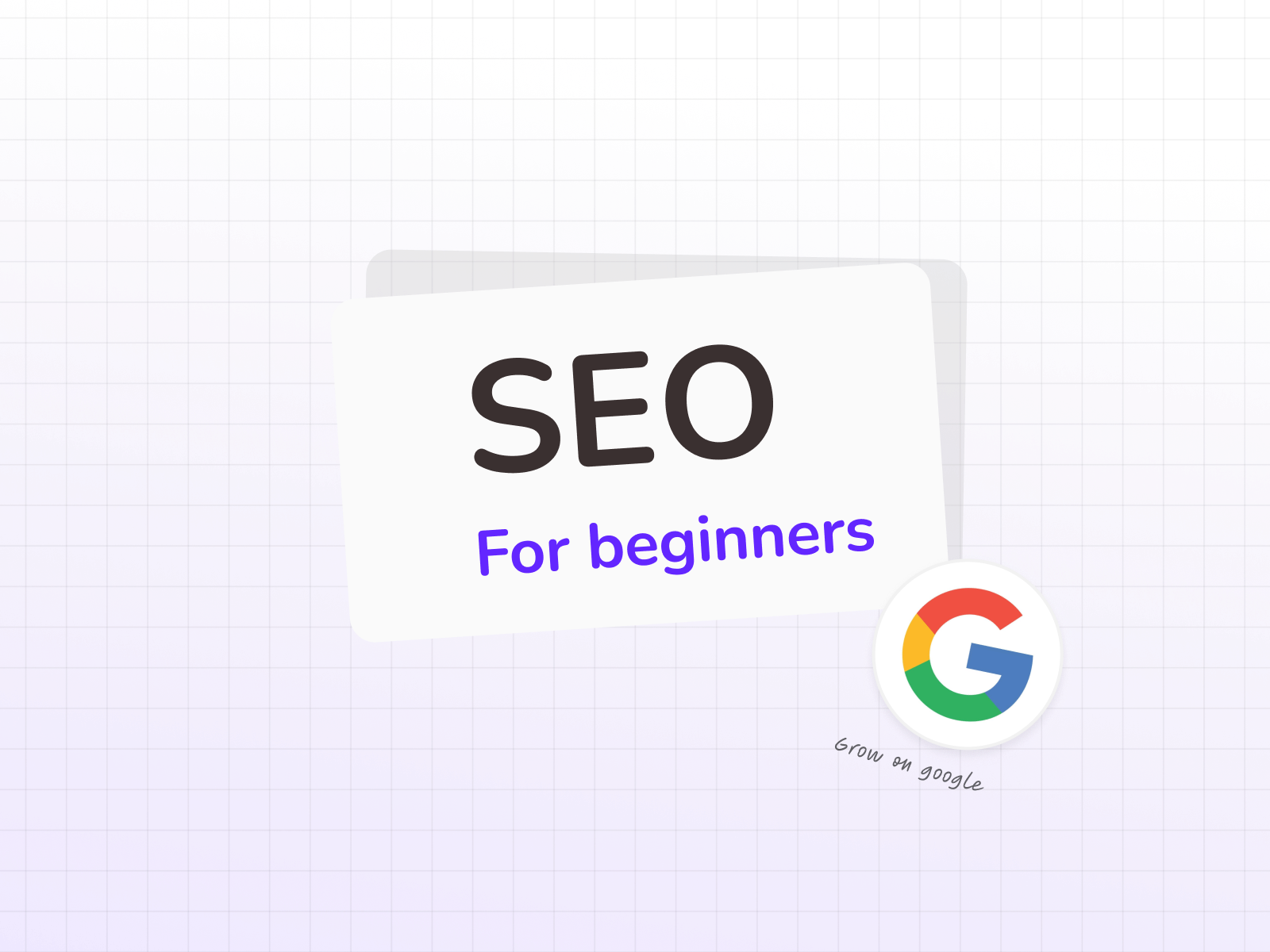Have you ever wondered how some websites always seem to pop up first when you search for something online? It is not magic, it is Search Engine Optimization, or SEO. Think of SEO as the process of making your website more visible to search engines like Google, Bing, or Yahoo. When your site is more visible, you have a better chance of attracting visitors, which can lead to more customers or readers.
Why should you care about SEO? Well, most people start their journey to find products, services, or information on a search engine.
If your website is buried deep on page five of the search results, very few people will ever find it. In fact, studies show that the vast majority of clicks go to websites on the first page. So, understanding SEO is crucial for anyone with an online presence, whether you run a small business, a blog, or an e-commerce store.
What about AI?
AI is learning from search engines. So this means that if you want them to know about you. You need to improve your SEO.
How Search Engines Work
Before diving into SEO, let us quickly understand how search engines operate. Imagine search engines as highly organized digital librarians. They have three main jobs, crawling, indexing, and ranking.
First, they crawl the internet using programs called "spiders" or "crawlers." These spiders follow links from one page to another, discovering new content, new websites, and updates to existing pages. They are constantly exploring the vast web.
Next, once a page is discovered, the search engine tries to understand its content. It processes and stores this information in a massive database, which is called indexing. When a page is indexed, it means the search engine has analyzed it and deemed it worthy of potentially showing up in search results.
Finally, when you type a query into a search engine, it uses complex algorithms to rank the indexed pages. These algorithms consider hundreds of factors to determine which pages are most relevant and authoritative for your search query. The goal is always to provide the best possible answer to your search.

Key Pillars of SEO
SEO is a multifaceted field, but it can be broken down into several core components. Mastering these will significantly boost your website's performance in search results.
Keyword Research
Before you write a single word, you need to understand what words and phrases your potential audience uses when searching. This is keyword research. It is like listening to your customers and finding out exactly how they ask for what you offer.
For instance, if you sell handmade jewelry, people might search for "unique silver necklaces," "artisan earrings," or "custom engagement rings." Identifying these specific terms helps you create content that directly answers their queries. Tools can help you discover these keywords, revealing their search volume, or how often people search for them, and their difficulty, or how competitive it is to rank for them. Selecting the right keywords is foundational to any successful SEO strategy.
On-Page SEO
On-page SEO refers to all the optimizations you can make directly on your website pages. This includes the content itself, the page's title, and its underlying code.
One crucial element is your page title. This is what appears in the browser tab and as the clickable headline in search results. It should be concise, compelling, and include your primary keyword. Below the title, you have the meta description. While it does not directly impact ranking, a well-written meta description acts as a mini-advertisement, enticing users to click on your result.
Optimizing your content is also vital. Use your target keywords naturally throughout the text, but avoid stuffing them in. Focus on creating high-quality, informative, and engaging content that genuinely helps your audience. Images on your page should also be optimized with alt text, which describes the image and helps search engines understand what it portrays. This makes your content more accessible and discoverable.
Technical SEO
Technical SEO focuses on the behind-the-scenes aspects of your website that affect how search engines crawl and index it. It is about ensuring your website is technically sound and easy for search engine spiders to navigate.
Key aspects include site speed. Users and search engines prefer fast-loading websites. A slow site can lead to higher bounce rates and lower rankings. Mobile-friendliness is another non-negotiable. With most searches now happening on mobile devices, your website must be responsive and provide a seamless experience on all screen sizes. Other technical elements include having a clean site structure, an XML sitemap to guide crawlers, and ensuring your site uses HTTPS for security.
Off-Page SEO (Link Building)
Off-page SEO refers to activities done outside your website to improve its search engine ranking. The most significant factor here is link building, which involves acquiring backlinks from other reputable websites. Think of backlinks as votes of confidence. When another website links to yours, it signals to search engines that your content is valuable, trustworthy, and authoritative.
Not all links are created equal. A link from a highly respected industry website carries more weight than one from a brand-new, irrelevant blog. Earning high-quality backlinks often involves creating exceptional content that others naturally want to link to, or reaching out to relevant websites and suggesting they link to your valuable resources.
Directory Ranking involves listing your business or website in online directories, like Yelp, Yellow Pages, or local business listings. These listings often include your name, address, phone number (NAP), and a link to your website. While they might not carry the same SEO weight as a powerful editorial backlink, consistent and accurate directory listings build citations and local relevance, which can still help search engines understand your business better and improve your local search visibility. Think of it as ensuring your business's contact information is widely available and consistent across the web, which signals trustworthiness to search engines.
The Power of Content Creation and FeedPal
At the heart of any successful SEO strategy is high-quality content creation. You can have the perfect keywords and a technically flawless site, but without compelling content, you will struggle to attract and retain an audience. This is where tools designed to simplify content creation become invaluable.
Imagine having an AI writer assistant that helps you craft engaging blog articles, optimized for search engines, and even schedules them for publication. This is precisely what FeedPal offers. FeedPal is a powerful SaaS product designed to improve your visibility on search engines by streamlining your article creation process. It helps you generate fresh, relevant content quickly, allowing you to consistently feed search engines with new material and maintain your ranking.
But FeedPal goes beyond just web visibility. It also provides an API and plugin, allowing you to showcase your articles directly within your mobile app. This is a game-changer for re-engaging your current mobile app users with content. Instead of needing them to visit your website, you can deliver valuable articles and updates directly to them, keeping them active and connected to your brand.

Measuring SEO Success
Once you start implementing SEO, how do you know if it is working? You need to measure your progress. Tools like Google Analytics and Google Search Console provide valuable data. You can track your website's organic traffic, see which keywords are bringing visitors, monitor your search rankings, and identify any technical issues. Regular monitoring helps you refine your strategy and focus on what is working best.
Conclusion
SEO might seem complex at first glance, but by understanding its core principles, you can significantly enhance your online presence. It is a continuous journey of optimizing your content, improving your website's technical health, and building its authority through quality backlinks. Remember, creating valuable, user-focused content is paramount, and tools like FeedPal can be your secret weapon, helping you create and schedule articles efficiently to boost your search engine visibility and even re-engage your mobile app users. Start implementing these strategies today and watch your online presence grow. Your audience is searching, make sure they find you.
